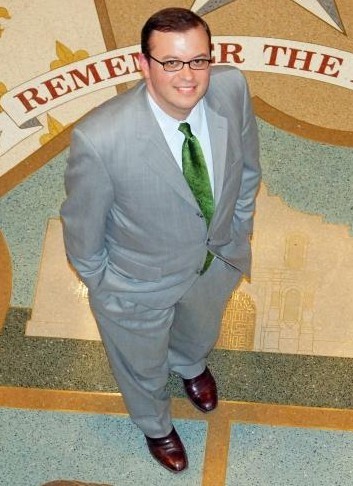The economy has been top of mind for me following my recent experience with unemployment. After all the drama and support I received from all sides, there came the simple issue of what I will do to feed my family and keep a roof over our heads.
I don’t have a college education but I am trained as a journalist. Over the years, companies large and small have prepared me to report and cover stories and trends. My on-the-job training is worth more to me than a college degree might ever have been in my chosen field.
So, I found myself unemployed with skills needed to bring important issues to light. Why not use the moment to help those who are also unemployed or under-employed? Why not figure out why we simultaneously have lots of unemployed people and lots of job openings?
And when I say lots of job openings, I mean lots.
Companies that employ skilled laborers can’t find enough people and the trend is for them to find it harder and harder to fill those positions. The Great State could easily face a shortage of skilled workers. Experts told lawmakers in Austin recently that too few people have the special skills needed to fill positions that don’t require a four-year college degree.
Laylan Copelin wrote in The Austin American Statesman: There isn’t a shortage of unemployed Texans. There are an estimated 325,000 current job postings in the state, according to the Texas Workforce Commission, and there are four job seekers for every posting.
The chairman of the Texas Workforce Commission, Tom Pauken, and others are starting to criticize the well-intentioned policy of putting every child in Texas on the “college track.” Pauken says despite good intentions, it isn’t working.
“We have accepted for too long this misguided notion that everyone should go to a four-year university. That flies in the face of reality and human nature,” Pauken said in a speech in Waco. “Let’s design a school finance and accountability system which recognizes that and re-establishes the importance of skills training to provide young Texans with terrific career opportunities,” Pauken said.
The man who may head up the Texas Senate Education Committee next year, Sen. Dan Patrick, agrees. Patrick, R-Houston, told the Texas Tribune “Everyone should have the option to go to college. But, not everyone should be tracked to go to a four-year university.”
“Part of our dropout rate is because a lot of students who are very bright and have a lot of skills and a lot of talent get to a physics course or some exam or some class that knocks them out,” Patrick said. “We need to value what I call blue collar work,” Patrick said.
Watch Sen. Patrick talk with Evan Smith of the Tribune:
Mike Rowe, the producer and host of Discovery Channel’s “Dirty Jobs,” says he created the show in honor of his grandfather: A blue collar worker Rowe looked up to as a kid.
“He could fix or build anything. But, to my knowledge, he never once read the directions to anything. He just knew how stuff worked,” Rowe said.
My grandfather was the same kind of man. He served honorably in Korea and Vietnam in the United States Air Force. When he returned to the states, he became a mechanic to provide for his family. His business card read “Art Downing, General Repairs.” He also had a version of the card that read “Art’s Fix em Where they Drop Shop.”
Unlike Rowe’s granddad, mine would resort to reading the manuals for whatever needed fixing. Because he often worked on complex farm equipment, a good portion of his day could be spent learning exactly how something was put together before he could even start the back-breaking work of repairing it. He essentially trained himself so that he could do the work that needed to be done. He’d work from the time the sun rose until it set, or longer.
My grandfather also taught me the art of helping people understand complex ideas. He’d sit and read the encyclopedia for fun. That’s well before almost anyone had the internet. As an 8 year old boy, I’d ask him what he was reading or thinking about and he could always explain it to me in a way I would understand. He was brilliant academically and also understood the value of hard work. The kind of work that makes your hands bleed.
Rowe, the “Dirty Jobs” host, told lawmakers on Capitol Hill about his grandfather and the “widening skills gap” in America. He told the Senate’s Commerce Science and Transportation Committee that “we need a national PR campaign …something that reconnects the country with the most important part of our workforce.”
Hundreds of thousands of jobs go unfilled because college-educated people don’t have the skills needed, he said.
“People are surprised that high unemployment can exist at the same time as a skilled labor shortage. But, they shouldn’t be. We pretty much guarantee it,” he said. “We talk about creating millions of shovel-ready jobs for a society that doesn’t really encourage people to pick up a shovel,” Rowe said.
Watch Rowe’s testimony:
Now, you might think Rowe is just a dopey broadcaster. You might also think that about me. But, there are some other pretty impressive people talking about this.
Driving into Houston a few weeks ago, I heard a lively discussion on NPR about whether too many kids are going to college. It must have been a re-run because I looked it up and it was from October. Nevertheless, it’s fascinating.
Henry Bienen, President Emeritus of Northwestern University, argued that college is a “consumption good.” In other words, college has intrinsic value.
“It was Steve Jobs himself, the late Steve Jobs, who said when he came back after dropping out of Reed and sat in on courses, he took a calligraphy course. And that calligraphy course gave him a whole new world of thinking about design. Who knows what, in the college experience, will trigger for people thinking about the world in a different way,” Bienen said.
In that same program, political scientist and author Charles Murray made the case that the way Americans think about certain kinds of jobs is damaging. We think careers that require higher education are good and those that don’t are bad.
“You want to hire a lawyer or a doctor you can do that in a nanosecond. You want to find good skilled labor? That’s hard,” Murray said. “Finding a good plumber, a good electrician to come and fix things, that’s hard. We have a demand for a wide variety of skills that we aren’t meeting because guess what: that’s demeaning.”
Murray’s point is well taken. Many do think skilled labor is demeaning.
When I was 8 years old, if someone had told me that what my grandfather did for a living was “demeaning,” I’m not sure how I’d process that. After all, he was my hero.


